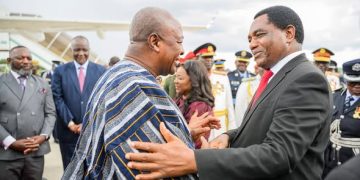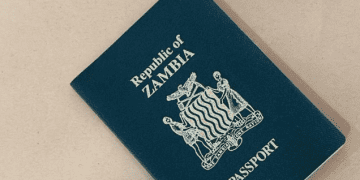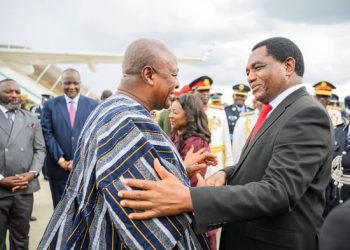Kenneth Kaunda was a towering figure in African politics, whose leadership and vision shaped the destiny of Zambia. As the country’s first president, he led the struggle for independence from British colonial rule and set the course for a new era of self-determination and development. Kaunda was not only a political leader, but also a visionary and a statesman, whose legacy continues to inspire generations of Zambians and Africans. He championed a philosophy of “humanism,” which emphasized the importance of social justice, equality, and respect for human dignity. This philosophy was reflected in his policies, which prioritized education, healthcare, and infrastructure development, and aimed to uplift the lives of ordinary people. In this article, we will explore the life and legacy of Kenneth Kaunda, and how his leadership shaped Zambia’s future. We will examine his achievements, his challenges, and his enduring impact on the country and the continent at large.

Kenneth Kaunda was born on April 28, 1924, in the town of Chinsali, in what was then Northern Rhodesia (now Zambia). He was the youngest of eight children. His father was a Church of Scotland missionary and teacher, and his mother was a teacher. Kaunda received his early education at the Munali Training Centre in Lusaka, and later attended the University of South Africa, where he studied economics and social anthropology.
In 1949, Kaunda became a teacher and a trade unionist. He founded the Northern Rhodesian African National Congress (NANC) in 1951, which later became the United National Independence Party (UNIP). In 1960, he was elected president of UNIP, and in 1964, he became the first president of independent Zambia.

Kenneth Kaunda was known for his charismatic leadership style. He was a natural orator, and his speeches were inspiring and persuasive. He had a deep commitment to social justice and equality, and he worked tirelessly to uplift the lives of ordinary people. He was also a firm believer in democracy and the rule of law, although he faced criticism for his authoritarian tendencies later in his presidency.
Kaunda was a unifying figure, who brought together people of different ethnic and regional backgrounds. He promoted a sense of national identity and unity, which helped to stabilize the country and prevent the kind of ethnic conflicts that plagued other African nations.
Kenneth Kaunda played a pivotal role in the struggle for Zambia’s independence. He led the NANC and later the UNIP, which organized protests and boycotts against British colonial rule. He was arrested several times for his activism, and spent time in prison.

In 1964, after years of struggle, Zambia gained independence from Britain. Kaunda became the country’s first president, and he worked to build a new nation that was free from colonial oppression and exploitation. He promoted a policy of non-alignment, which meant that Zambia did not align itself with any particular bloc during the Cold War. This policy allowed Zambia to maintain good relations with both the West and the Soviet Union.
Kenneth Kaunda’s economic policies for Zambia were based on the principles of socialism and humanism. He believed that the resources of the country should be used to benefit all Zambians, not just a privileged few. He nationalized key industries, such as mining and banking, and invested heavily in infrastructure development.
Under Kaunda’s leadership, Zambia experienced significant economic growth in the 1960s and 1970s. However, the country also faced challenges, such as the decline in copper prices and the oil crisis of the 1970s, which led to economic stagnation and high inflation.
Kenneth Kaunda was committed to promoting education and healthcare in Zambia. He believed that these were essential components of human development, and he invested heavily in these areas.

Under Kaunda’s leadership, Zambia achieved significant progress in education. The country’s literacy rate increased from around 15% at independence to over 75% by the 1990s. Kaunda also introduced free primary education, which helped to increase access to education for children from poor families.
In healthcare, Kaunda introduced a system of community health workers, who provided basic healthcare services to people in rural areas. He also invested in the construction of hospitals and clinics, and introduced a national health insurance scheme.
Kenneth Kaunda’s legacy in Zambia and beyond is significant. He was a leader who inspired a generation of Zambians and Africans to fight for their rights and to strive for a better future. He promoted a philosophy of humanism, which emphasized the importance of social justice, equality, and respect for human dignity. He championed the cause of African unity, and worked to promote peace and stability on the continent.

Kaunda’s legacy is also reflected in the institutions and infrastructure that he built in Zambia. The country’s education and healthcare systems, as well as its road and rail networks, are a testament to his vision and commitment to development.
Kenneth Kaunda passed away on June 17, 2021, at the age of 97. His passing was mourned by people in Zambia and around the world. In Zambia, the government declared a 21-day period of national mourning, during which flags were flown at half-mast. There were also public events to celebrate Kaunda’s life and legacy, including a state funeral.
Around the world, leaders and organizations paid tribute to Kaunda’s contributions to African politics and development. The African Union, the United Nations, and the Commonwealth all issued statements honoring his memory.

Kenneth Kaunda’s leadership offers many lessons for current and future leaders. His commitment to social justice, equality, and human dignity is a powerful reminder of the importance of putting people at the center of development. His vision of African unity and non-alignment is also relevant today, as the continent faces new challenges and opportunities.
Kaunda’s leadership also highlights the importance of strong institutions and infrastructure for development. His investments in education, healthcare, and infrastructure were critical for Zambia’s progress, and remain important for the country’s future.

Kenneth Kaunda was a remarkable leader whose legacy continues to inspire people in Zambia and around the world. His commitment to social justice, equality, and human dignity, as well as his vision of African unity and non-alignment, are enduring contributions to African politics and development. His investments in education, healthcare, and infrastructure were critical for Zambia’s progress, and remain important for the country’s future. Kaunda’s leadership offers many lessons for current and future leaders, and his legacy will continue to shape Zambia’s future for generations to come.








































